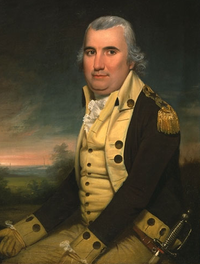The War of 1812
In accordance with Congress, President Jefferson released the information on our civics and foreign relations. We do not have any resources being traded, with one corn as a surplus.
President Jefferson also sent out a settler and a minuteman out to the Oregon Territory. He didn't quite remember what to name it though, so he'll have to check with his advisers when the time comes; if they get there whilst he is in the White House.
President Jefferson wanted to make some allies that could help us in times of need, so he offered 50 gold to the Kingdom of Spain, so that we could start relations with the most powerful empire in the West at the time.
The French continued to expand their influence in North America, in land that should rightfully be American, in accordance to a belief called Manifest Destiny. They held the resource-rich New Orleans area, and the fur-rich province of Quebec. President Jefferson declared war on France in the year 1812, preparing for a battle tougher than the one Washington had with the British.
Jefferson first sent the Native Americans from the Midwest into the Louisiana and Quebec Territories, in order to distract and weaken the French forces.
Jefferson didn't believe he could fight the French on his own, so he signed a temporary defense pact with Spain to aid them in their battle.
What Jefferson didn't know, however, was the revolution building in Mexico.
Jefferson started the siege on Quebec with a grenadier battalion after sending in cannons to weaken the barricades the troops had set up.
President Jefferson ordered more sieges on the cities to cause collateral damage on the troops living there, for they were heavily fortified and trained quite well.
Finally, the city of New Orleans was taken from the French, dealing a significant blow to not only their troops, but to their image.
From this battle came a general recognized by President Jefferson himself, Dwight D. Eisenhower. He had been on the front lines fighting the French in the bayous of Louisiana.
Tales say he shot a bullet through two different French soldiers, but who knows if that's true?
He settled in Washington, D.C. to help train new recruits.
Not too long after was the city of Montreal taken. The French's cities in mainland North America have all been taken by America! President Jefferson was impressed with himself; he expected a bigger show from the French, but he wasn't going to complain.
Jefferson went to Paris himself to negotiate a deal. He forced King Louis XIV to pay reparations and sign a peace treaty right to his face, humiliating the Sun King in his own palace.
The settlers sent out long ago finally made it to the Oregon Territory. Jefferson forgot to tell them to name Seattle New Raleigh, but that can always be changed, right?
Jefferson ordered the new states of Iowa, Oregon, Louisiana, Mississippi, and Washington State to be created. The state of Maine gained independence from New Hampshire, and Vermont formally became a state as well.
West Virginia, wanting to differentiate themselves from Virginia, also became a state, along with Quebec.
Jefferson, wanting D.C. to gain representation allowed D.C. to become a state as well.
It was at this point that Jefferson decided to step down as President. He had taken control as the leader, postponing the election of 1804 for quite a few years. Charles Pinckney would still be running for president.


















